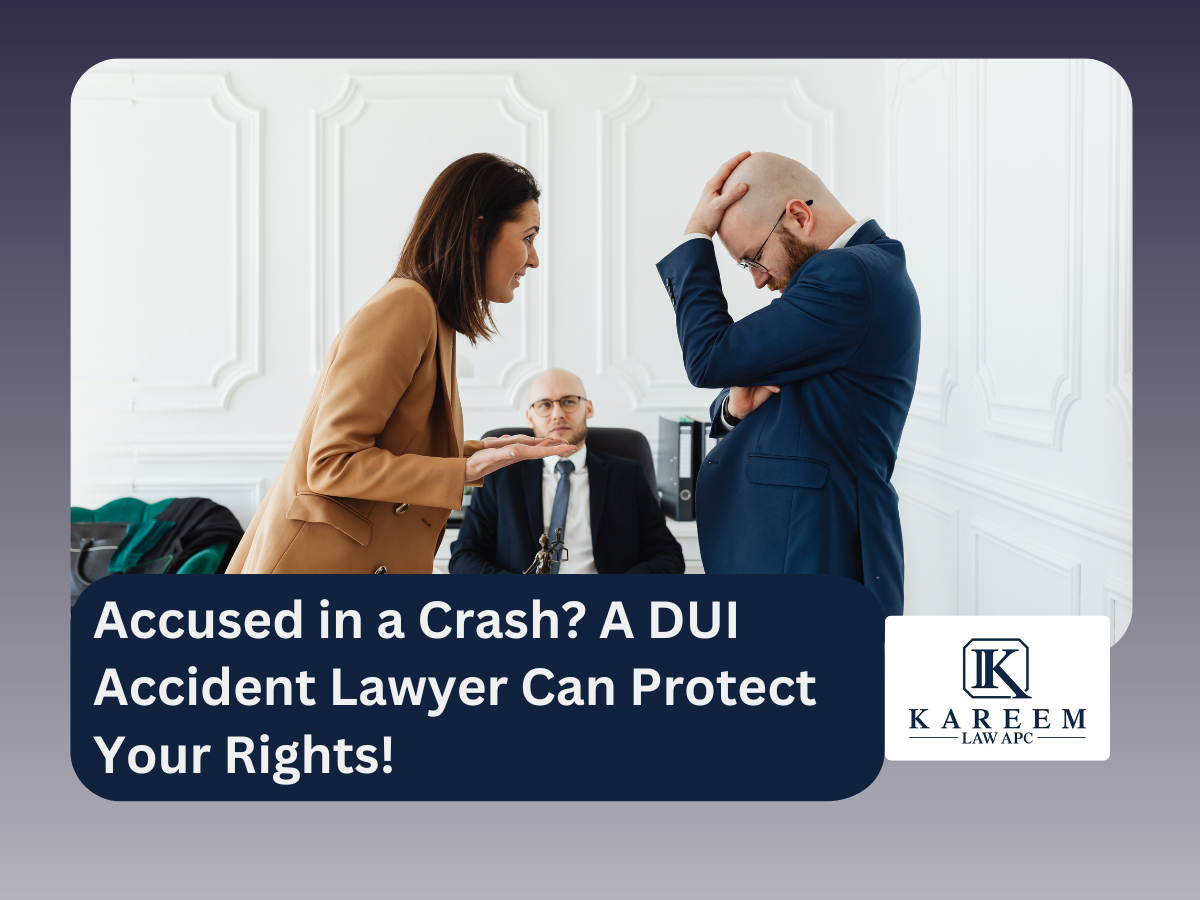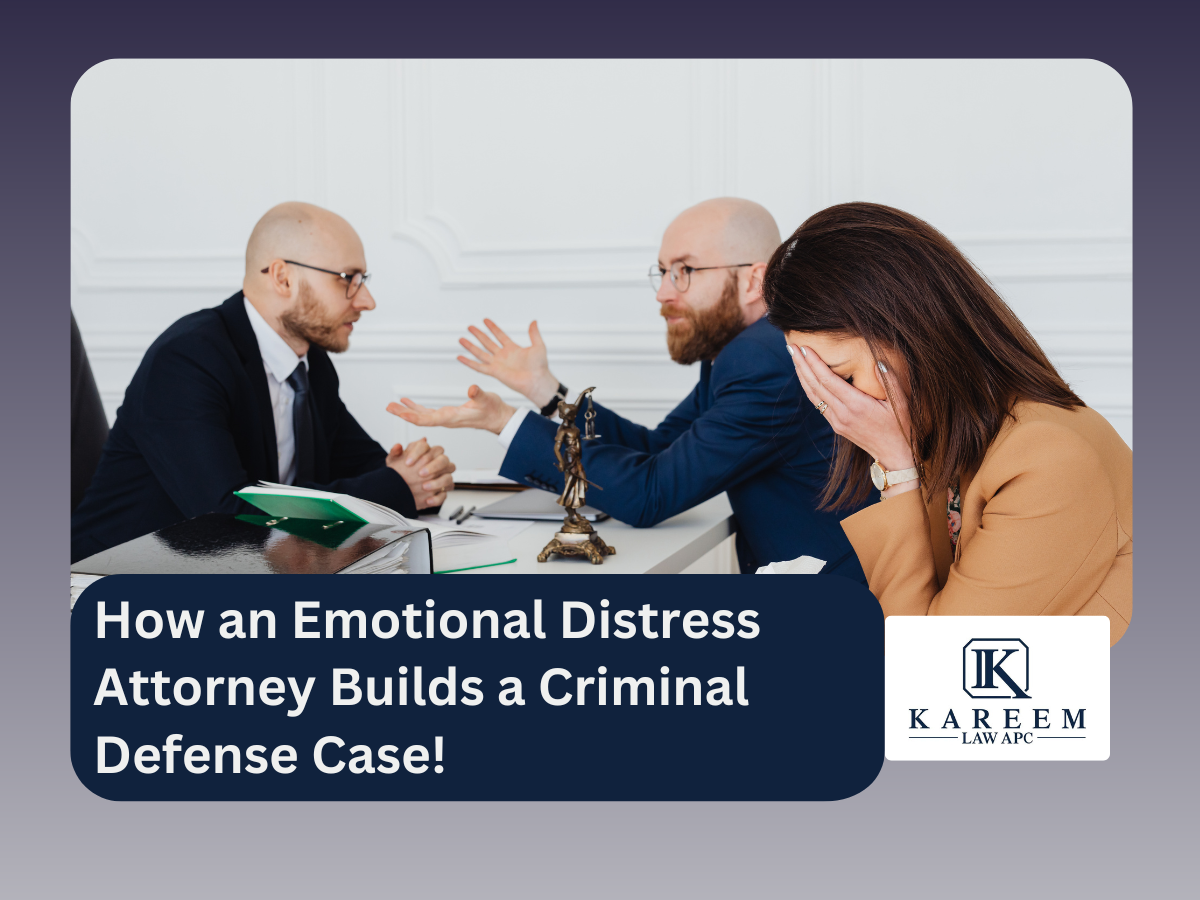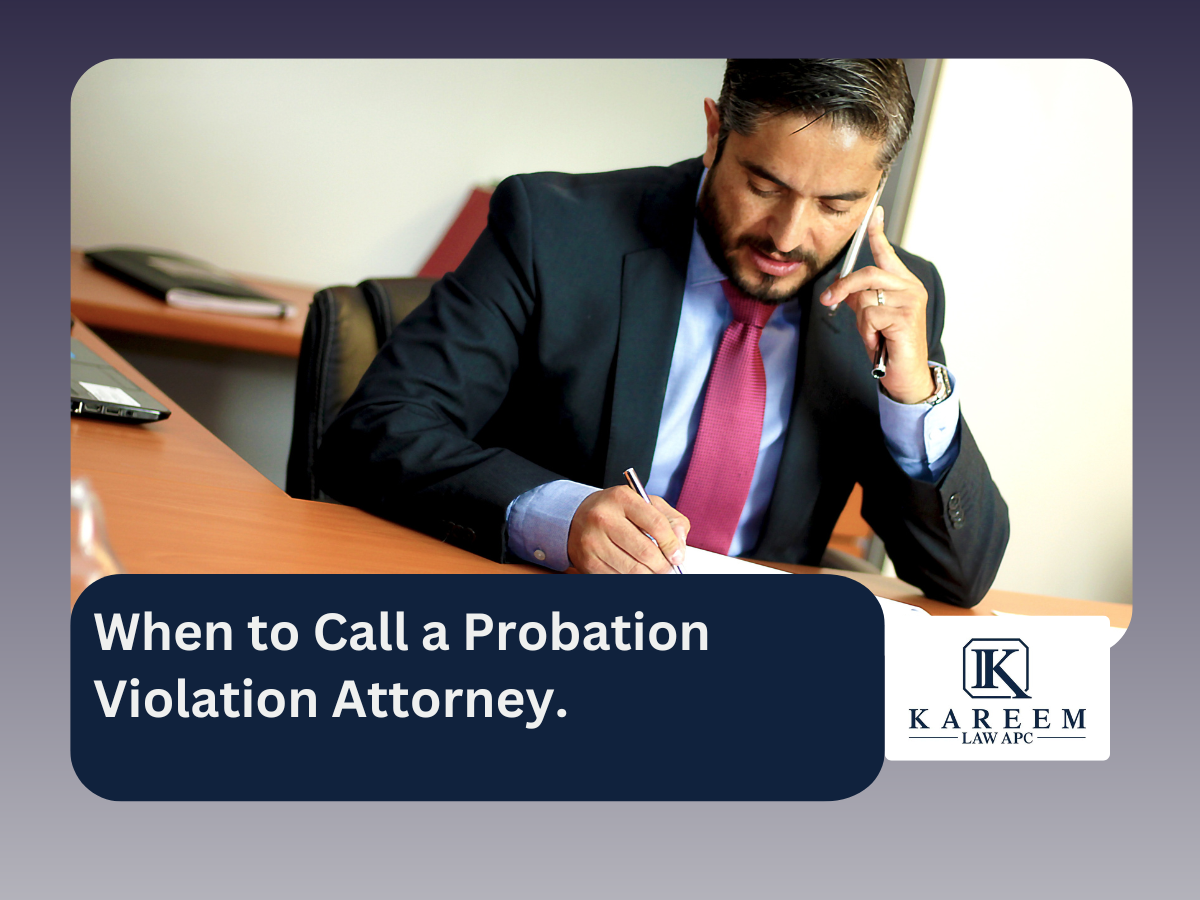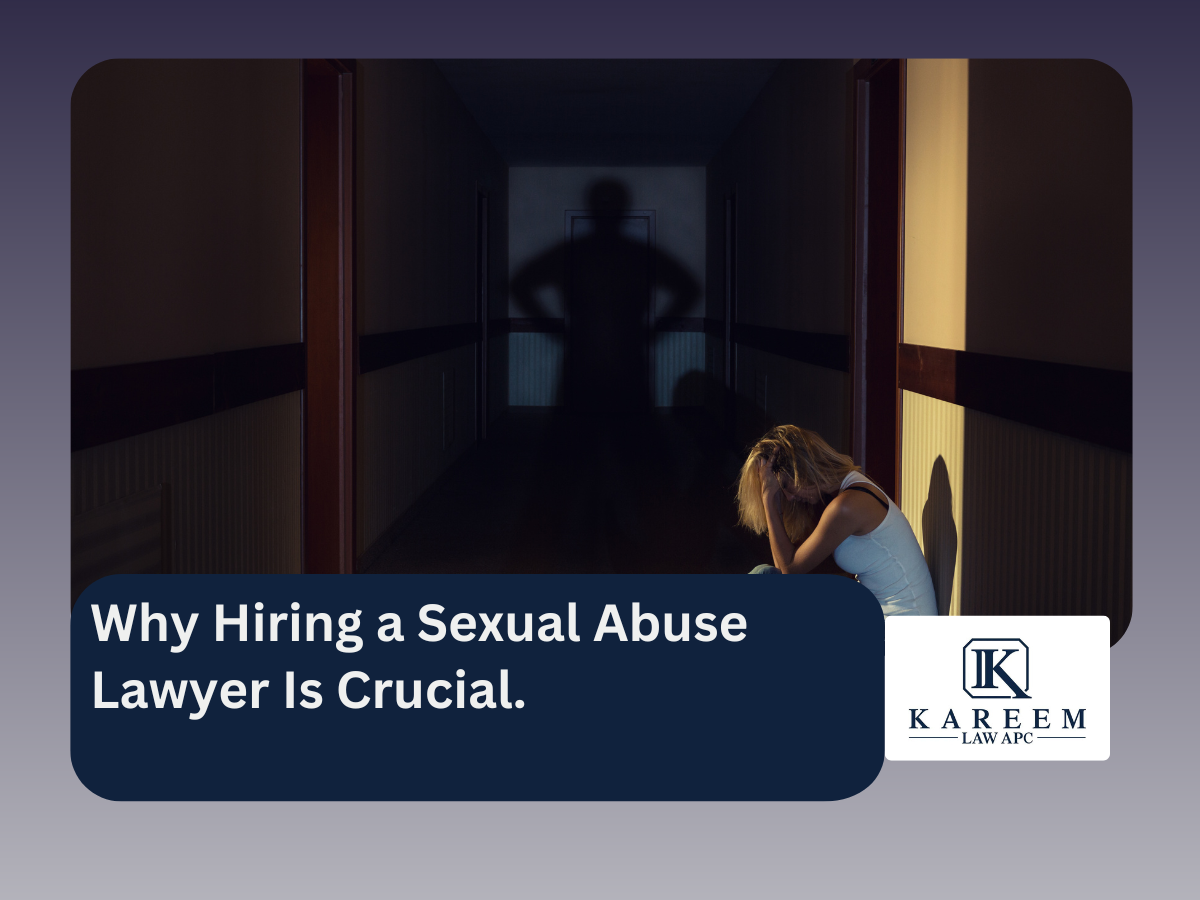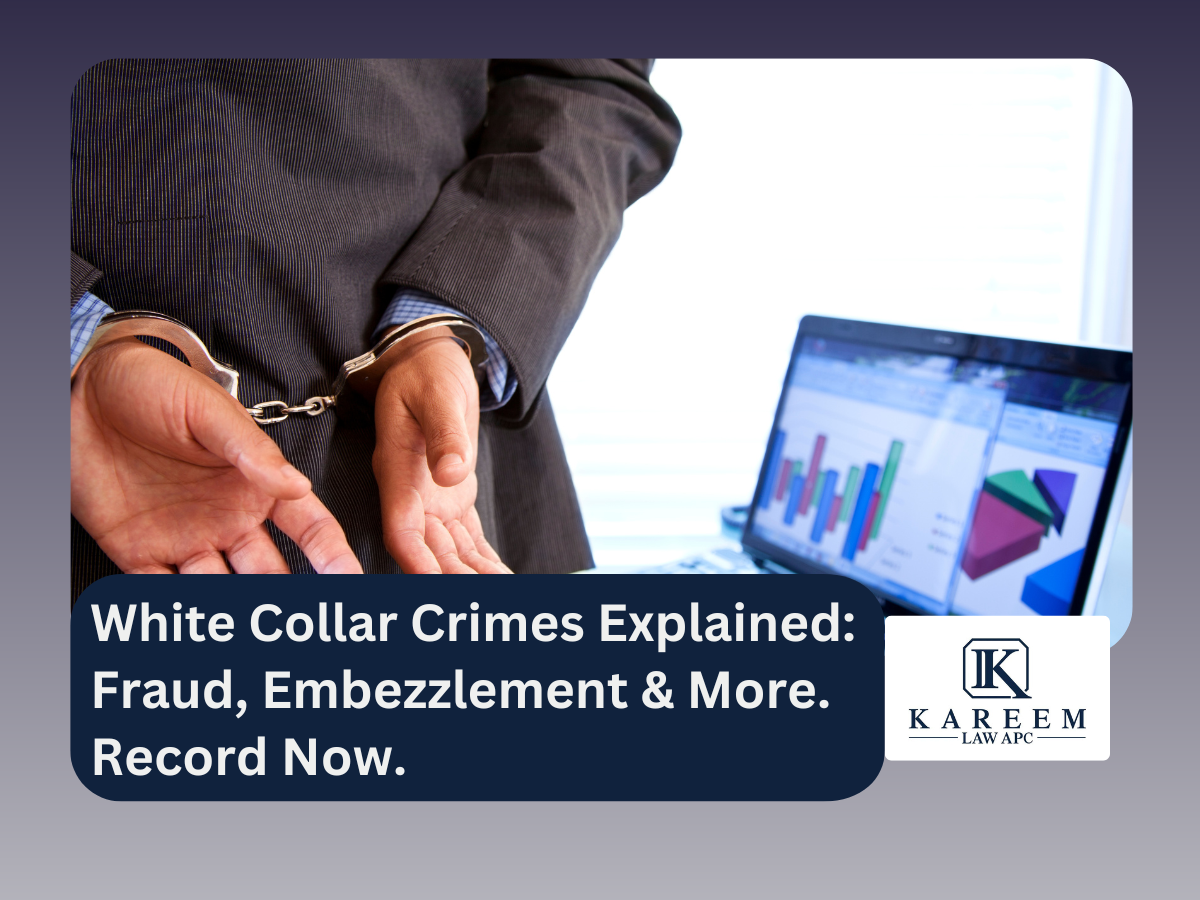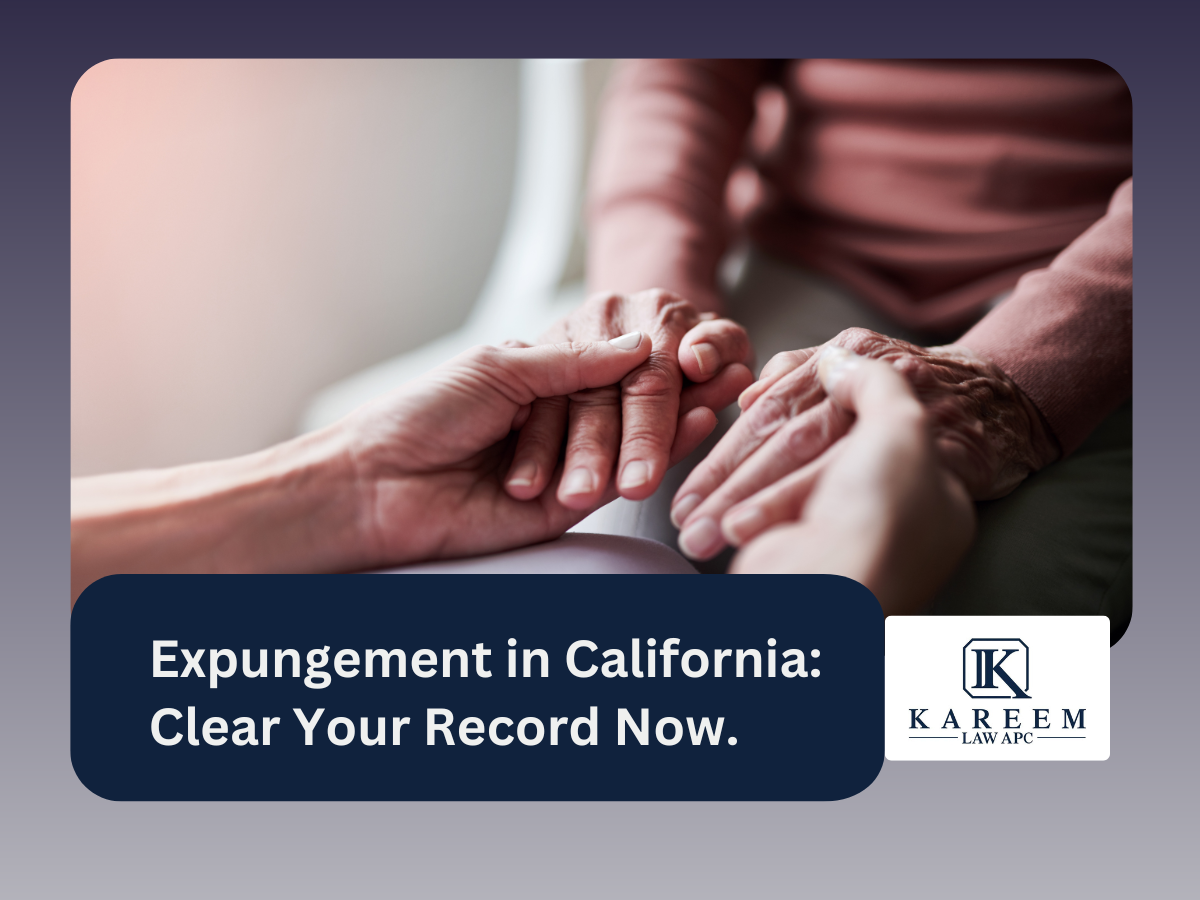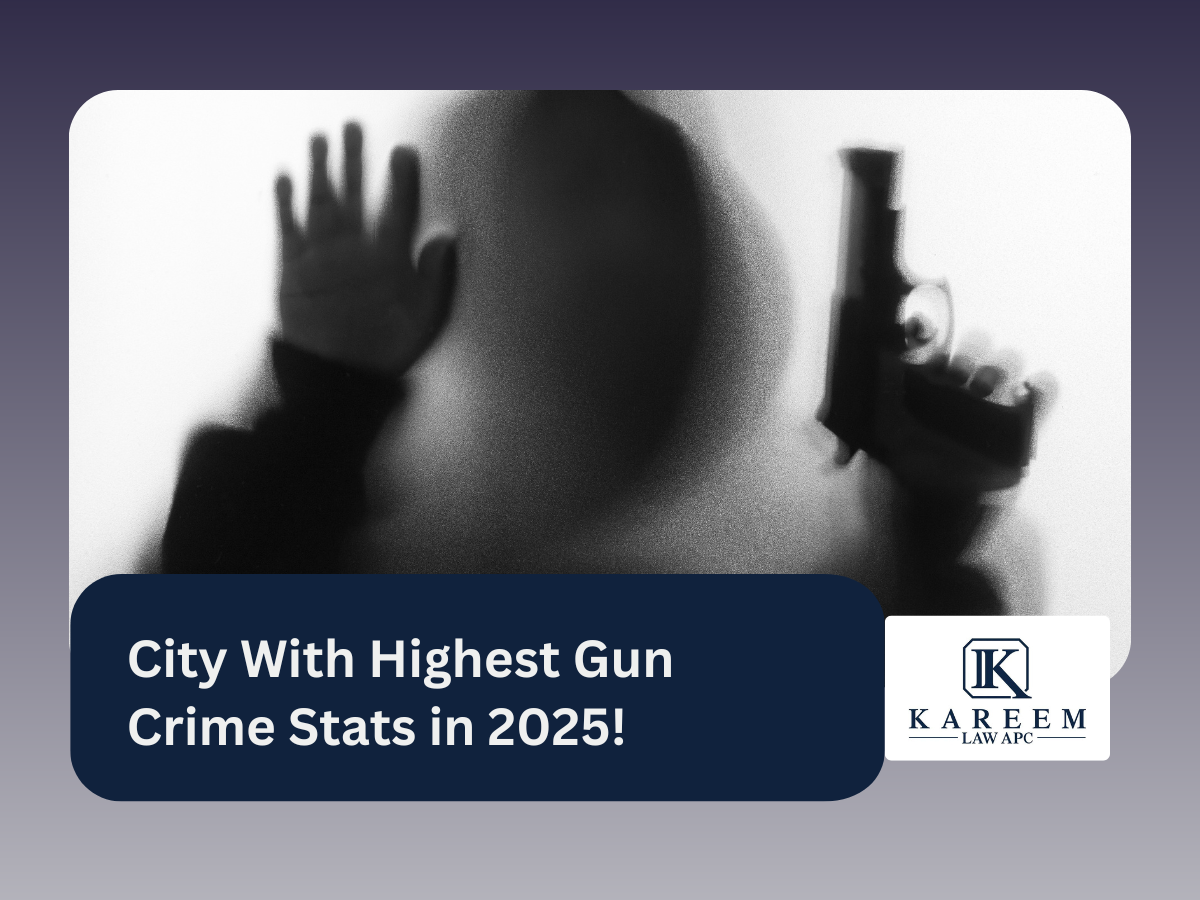A skilled DUI accident lawyer can fight drunk driving charges, protect your license, and build a strong defense from day one.
INVESTIGATIONS lawyer california
CALIFORNIA INVESTIGATIONS OVERVIEW
Speak With Our Experts Today
KAREEM A. RAMADAN: Your Trusted Investigations Lawyer in California with the Depth of Legal Talent You Need
Practice Area
Contact Now
kramadanlaw@gmail.com
1026 W. Foothill Blvd, Suite 101 Upland, CA 91786
(888) 671-5933
Best California INVESTIGATIONS lawyer



A criminal defense attorney in California can provide you with more assistance than just suggestions on how to behave when being questioned. A capable attorney will get in touch with law enforcement before charges are brought up to learn more about the investigation and to exert pressure on the prosecution to conclude the matter favorably. Your California investigation lawyer’s objective at this point is to prevent the filing of criminal accusations against you.
Why Should I Get an Independent Investigator?
Hiring an investigator is one of the most important pre-trial actions you can take to strengthen your negotiating position and the strength of your potential trial.
Investigators mainly focus on the following tasks:
- Interview witnesses and record their statements
- Collect physical evidence, such as audio and video recordings
- Serve subpoenas to compel the trial attendance of witnesses and the production of evidence
- Testify at trial if witnesses change their stories or lie on the stand.
The witnesses in your case will likely be questioned by the police. The police are responsible for summarizing these witnesses’ statements and forwarding them to the prosecutor. This provides the police with a tremendous advantage, as they can distort facts to their advantage and omit facts that would benefit you. The numerous advantages to hiring the ideal criminal defense attorney prior to trial.
What is the Process of the Police Investigation?
There are many, and you might recognize some of the following if you watch cop shows:
- Saying they know more than they do
- Implying that someone you know has already confessed
- Saying that things will go “better” if you talk
- Using a “good cop bad cop” routine
What are the Objectives?
If they had no reason to believe that a crime had been committed, the police would not be speaking to you. Their objective is to compile as much evidence as they can in order to either arrest you or obtain a warrant for your arrest. What evidence is required to obtain a warrant may surprise you. It is much less demanding than what is required for a conviction.
The fact that police officers are naturally suspicious is not shocking. They encountered numerous criminals due to their line of work. Because suspects can lie, they must be vigilant. This is just a requirement of the job, but it also means that because of their suspicion, officers might draw premature conclusions (another cop show trope).
Getting you to implicate yourself or someone else is the simplest way for the police to end a case. They employ a variety of strategies to do this, and you are, regrettably, at a disadvantage. Although it is illegal to lie to the police, they are permitted to use false or deceptive statements to gain information from you that could result in a warrant (up to a point). If police start to overstep their bounds, Riverside criminal investigation attorneys are trained to spot these ruses and can defend you.
What Are the Consequences of DUI Under 21?
The consequences of driving under the influence of alcohol or drugs can be devastating. These consequences include:
- The revocation of professional licensure (nurses, radiologists, truck drivers, etc.).
- The suspension or revocation of a driver’s license.
- Incarceration.
- Thousands of dollars in fines.
- The forced installation of an ignition interlock device.
- Mandatory alcohol education classes.
- Restitution is repaid to any victims for damage to health or property.
- The potential death of a human being.
Ironically enough, for people between the ages of 18 and 21, it may be easier to defend against an underage DUI charge than for those who are already adults, and it may result in extremely light criminal punishment.
What is a Criminal Background Check?
A criminal background check provides information about your criminal history, such as past convictions and arrests. Criminal background checks can be performed by various people, such as landlords, schools, and potential employers.
Your criminal background check can have a major impact on your future opportunities in life. If you have a criminal record, you need to know what your criminal background check says about you. Your past convictions and arrests do not need to hang over you for the rest of your life. In many cases, arrests and convictions can be prevented from appearing on background checks.
An experienced criminal defense attorney can help you clean up your record and get your life back on track.
What Shows Up On A Criminal History
A criminal background check in California can show potential employers:
- Misdemeanor convictions
- Pending criminal cases
- Arrest reports that led to a felony conviction
- Any history of incarceration as an adult
- Felony convictions
- Arrest reports that led to a misdemeanor conviction
- Arrests pending prosecution
What Will Not Show on a Criminal Background Check?
In California, criminal convictions can only be reported for 7 years, with a few exceptions. Any misdemeanors, complaints, indictments, arrests, and convictions older than that cannot be reported on background checks. Full pardons, expungements, and arrests that did not lead to a conviction cannot be reported at all.
Other information that should not appear on a criminal background check includes:
- Your participation in diversion programs.
- Any sealed record.
- Any juvenile records.
- Non-felony marijuana possession convictions which are more than 2 years old.
Employers are required by law to keep all criminal background checks for at least 2 years. If you later have something removed from your criminal record, employers will still have copies of your old criminal background check.
Employers are required to tell you which agency provided their criminal background check. Whoever conducted the check must provide you with a copy of their full report if you ask them for it within 2 years of the initial check. This can help you find out exactly what information was provided and whether it is correct.
Why Do I Need To Check My Criminal Record?
Your criminal history may affect your opportunities. Your criminal record may disqualify you for housing or a job. Knowing what your criminal record says about you lets you explain it.
It can also clarify your criminal record disclosure requirements. Your criminal record may contain information you didn’t know, making a potential employer think you’re dishonest.
Checking your criminal record may help improve it. It may be inaccurate, outdated, or confidential. Without reviewing your criminal record, you cannot correct information that may unfairly limit your opportunities.
Many crimes are expungable or reduceable to misdemeanors. A criminal record check will reveal your charges and other information, such as your conviction date, that can help you seek expungement or reduction. If your offense’s law has changed since your conviction, this is important.
Criminal record checks reveal your charge, plea, and probation status. Charge reduction and expungement require this information.
Know the legal proceeding done by the internal investigations lawyers for your legal case?
Call (888) 671-5933 now.
Investigation lawyer California
If the police contact you to discuss a criminal investigation, contact an experienced Southern California investigations lawyer immediately.
The Evidence Whisperers: Investigative Lawyers' Expertise in Legal Discovery!

Areas We Serve

Honorable And Determined Criminal Defense Attorney To Protect Your Future.
we’re here to Help You
Questions To Ask When Choosing Your Criminal Defense Attorney
What does an investigative lawyer do?
An investigative lawyer conducts or oversees legal investigations involving misconduct, fraud, harassment, or regulatory violations. They gather evidence, interview witnesses, and ensure compliance with company and legal standards.
What is an internal investigations lawyer?
An internal investigations lawyer helps organizations respond to allegations of internal wrongdoing — such as employee misconduct, discrimination, harassment, financial fraud, or policy violations. They ensure the investigation is lawful, confidential, and unbiased.
When should a company hire an internal investigations attorney?
You should hire an internal investigations lawyer as soon as an employee complaint, whistleblower report, or compliance issue arises. Early legal guidance helps protect your organization, maintain credibility, and prevent escalation.
Are internal investigations confidential?
Yes — confidentiality is critical in any internal investigation. An internal investigations attorney ensures sensitive information is handled discreetly to protect the company’s reputation and legal standing.
What’s the difference between an investigative lawyer and a private investigator?
A private investigator gathers evidence for private clients but is not licensed to offer legal advice. An investigative lawyer, on the other hand, is a licensed attorney who can both investigate and represent clients in legal or regulatory proceedings.
Can an investigative attorney represent individuals as well as companies?
Yes — an investigative lawyer can represent both individuals and organizations in cases involving workplace complaints, fraud, ethics violations, or professional misconduct allegations.
What industries use internal investigation lawyers most often?
Internal investigations lawyers are often hired in industries like finance, healthcare, education, government, and corporate sectors where compliance, confidentiality, and ethical standards are critical.
How long does an internal investigation usually take?
The timeline depends on case complexity, number of witnesses, and evidence involved. Simple cases may take a few weeks, while large-scale corporate investigations can last several months. Your internal investigations lawyer can estimate the timeframe after an initial review.
How can an investigative lawyer protect a company during an internal probe?
An investigative attorney ensures the investigation follows legal and ethical standards, helps mitigate liability, and prepares the organization to respond to potential lawsuits or government inquiries.
Can Employers Access Criminal Records?
Yes, but only after a conditional offer of employment. A criminal background check may not include arrests that did not result in a conviction. If needed, institutions that care for vulnerable people or children can conduct more extensive background checks.
How Long Is a California Criminal Background Check?
A criminal background check in California can take anywhere from a few hours to more than a week, depending on the agency and the ease with which your records can be accessed. It is, however, not uncommon for a background check to be delayed. Delays occur for a variety of reasons, including the need for additional research to confirm the records’ accuracy, and are usually not cause for concern. Some criminal background checks, such as fingerprint record checks, can take up to a week to complete.
What Causes A Red Flag On A Background Check?
Yes. There are laws that govern who can check your criminal history, what information they can use, and how they can use it. You can sue someone for damages if they conduct a criminal background check on you before meeting the necessary requirements, use the information to unfairly discriminate against you, or otherwise violate the laws governing criminal background checks.
What do the police look for when the pull me over?
Some employers may view information that you have not disclosed as a red flag. Although you are not required to disclose your criminal history to an employer unless asked, you do not want employers to read your record before hearing your explanation. Additionally, pending cases and active warrants are red flags. Due to clerical error, these may be left on your record when they are no longer relevant, but it will appear to anyone reviewing your record that you are still under investigation.
Make Sure You Hire a Reliable Criminal Defense Attorney
OUR BLOGS

How an Emotional Distress Attorney Builds a Criminal Defense Case!
Find out how an emotional distress attorney strengthens criminal defense cases by proving psychological harm and protecting your rights.
Charged Again? A Probation Violation Attorney Can Defend You Fast!
Get expert help from a probation violation attorney for repeat offenses. Learn how legal guidance can protect your freedom and minimize penalties.
California DUI Law: What Every Driver Needs to Know in 2025!
From penalties to legal updates, this 2025 guide breaks down California DUI law so every driver knows their rights and responsibilities.
DUI vs DWI: What’s the Difference and Why It Matters.
DUI vs DWI laws vary by state—learn the key differences, penalties, and why choosing the right defense matters for your case.
Is Burglary a Felony? What the Law Says.
Is burglary a felony? Yes, in most states—it can carry serious penalties depending on intent, location, and prior convictions.
When to Call a Probation Violation Attorney.
A probation violation attorney helps protect your rights and avoid jail time when accused of breaking probation terms.
How a DUI Accident Lawyer Can Protect Your Rights.
A DUI accident lawyer defends your rights and helps reduce penalties or dismiss charges after a DUI-related crash.
Why Hiring a Sexual Abuse Lawyer Is Crucial.
A sexual abuse lawyer helps survivors seek justice and compensation while holding abusers accountable under the law.
Federal Crimes Lawyer: Who You Need on Your Side.
A federal crimes lawyer defends serious charges like fraud, conspiracy, or drug trafficking with aggressive legal strategies.
Gun Crime in America: Alarming Facts You Should Know.
Gun crime in America continues to rise—explore key facts, statistics, and legal consequences related to firearm offenses.
White Collar Crimes Explained: Fraud, Embezzlement & More.
White collar crimes include fraud, bribery, embezzlement, and more—know the charges, penalties, and defense options.
Expungement in California: Clear Your Record Now.
Expungement California laws let you clear your record and start fresh—learn how to qualify and file your petition today.
Caught Stealing? A Theft Crime Lawyer Can Help
Whether it’s shoplifting, employee theft, or any kind of property crime, getting caught stealing is among the terrifying events someone can go through. Your whole existence might flip around in a moment. You might be questioned, handcuffed, fingerprinted, then let go into a world of doubt and guilt. One can get completely overwhelmed by the uncertainty of what […]
Abuse and Sexuality: The Hidden Link Behind Criminal Charges!
Explore the connection between abuse and sexuality and how it impacts criminal charges, legal defenses, and court outcomes in 2025.
Why You Need a Theft Crimes Attorney Before It’s Too Late!
A theft crimes attorney can fight charges, protect your record, and help you avoid harsh penalties for shoplifting, burglary, or fraud.
Famous White Collar Criminals of 2025 – Where Are They Now?
From fraud to prison time—see where famous white collar criminals of 2025 are now and how their cases reshaped corporate crime laws.
Caught Breaking In? A Burglary Lawyer Could Save Your Future!
Caught breaking in? A burglary lawyer can defend your rights, reduce penalties, and help save your future from long-term consequences.
Which City Has the Highest Gun Crime Rate in 2025? The Results Are Alarming!
Discover the city with highest gun crime in 2025 and what the statistics reveal about safety, law enforcement, and legal implications.
Is a DUI a Felony in 2025? New Laws You Need to Be Aware Of!
Is a DUI a felony in 2025? Discover the latest legal updates, penalties, and how the best DUI attorney can help defend your future.
REAL STORIES FROM REAL PEOPLE
From the first call with Kareem he created a strong relationship with me where I felt appreciated and heard. Mr. Ramadan was always available when I needed answers and did a fabulous job settling my case.
The next day, he was already doing a jail visit with my family member. The following day, we were meeting and discussing the case in his office. Right from the beginning,
Kareem expressed his care and compassion for us and my incarcerated family member. He also made us feel very comfortable telling us a personal story of his that made him appreciate nurses, which my mom and I are! This life journey of his, made us feel that he knows the value of life and our family member would be in excellent hands.
Kareem was always available to answer all our questions. If you call him or text him, he will always respond right away or within a few hours. This was an extremely difficult time in our lives and Kareem was always there to ease our minds. When trying to find an attorney who is going to save your life or a close family members, you have to fully trust your lawyer and Kareem is that man. He strongly advocated for my family member and got him released from jail with a mental health diversion. This was the goal from the beginning and we could not be more thankful to Attorney Kareem for the outcome.
-
 I was faced with a case that never in my life I'd imagine to be dealing with that could've had detrimental effects on my life and career ending. Kareem was... read more the best defense I had to get my life back together. From start to finish Kareem was very attentive, informative and determined to help get this fixed and he did! The case was never filed! Thank you!
I was faced with a case that never in my life I'd imagine to be dealing with that could've had detrimental effects on my life and career ending. Kareem was... read more the best defense I had to get my life back together. From start to finish Kareem was very attentive, informative and determined to help get this fixed and he did! The case was never filed! Thank you! 
 WaKas M.
WaKas M.
9/14/2022 -
 I was very fortunate to have had Kareem as my attorney. From our very first conversation, I could tell he was very knowledgeable and experienced. His empathy and care... read more for my devastating situation, were encouraging and made me feel safe. Kareem was very personable, reachable, and communicated clearly. Kareem put a lot of effort to get the case dismissed and achieve a complete resolution without the additional stress of a trial. The relief of putting that unfortunate circumstance behind me, still feels unreal and I am beyond grateful to Kareem!
I was very fortunate to have had Kareem as my attorney. From our very first conversation, I could tell he was very knowledgeable and experienced. His empathy and care... read more for my devastating situation, were encouraging and made me feel safe. Kareem was very personable, reachable, and communicated clearly. Kareem put a lot of effort to get the case dismissed and achieve a complete resolution without the additional stress of a trial. The relief of putting that unfortunate circumstance behind me, still feels unreal and I am beyond grateful to Kareem! 
 Anna D.
Anna D.
4/13/2022 -
 Mr. Ramadan is an amazing lawyer. I had a case that I wanted to get off of my record from a mistake I made in my youth and he was... read more able to get it dismissed with ease. He reached out any time there was an advancement in the dismissal of my case and he would answer any questions I had regarding it. He puts his customers first and for that, I could not be any more thankful that he was my lawyer for my case. He is honest, reliable, and thorough. I am so happy I had him for my case and now I can finally move forward in life without anything holding me back.
Mr. Ramadan is an amazing lawyer. I had a case that I wanted to get off of my record from a mistake I made in my youth and he was... read more able to get it dismissed with ease. He reached out any time there was an advancement in the dismissal of my case and he would answer any questions I had regarding it. He puts his customers first and for that, I could not be any more thankful that he was my lawyer for my case. He is honest, reliable, and thorough. I am so happy I had him for my case and now I can finally move forward in life without anything holding me back. 
 Melissa S.
Melissa S.
5/17/2022 -
 I had reached out to Kareem Law APC after finding out I was being wrongfully accused of an incident, and he immediately called me back late at night. I have... read more never been through the legal process or ever thought I'd be dealing with a potential lawsuit, and my anxiety and emotions were incredibly high.
I had reached out to Kareem Law APC after finding out I was being wrongfully accused of an incident, and he immediately called me back late at night. I have... read more never been through the legal process or ever thought I'd be dealing with a potential lawsuit, and my anxiety and emotions were incredibly high.
He took the time to listen to the events that happened, reviewed my evidence, and educated me about the law process. Him and his team moved swiftly and began speaking to detectives and submitting my evidence on my behalf.
My case was eventually rejected and I owe it all to him and his team, their speediness, and effort they put forward on my behalf.
He was always available and understanding, I couldn't be more happy with them and would refer them to any friend or family member.
If you are in need of a lawyer, or think you may need one, give him a call right away!
 Andy K.
Andy K.
1/31/2023 -
 I needed a lawyer for my son that got himself into trouble. This was the best decision that I made, even though I did not have the extra money for... read more this expense. Kareem, after my first phone call was able to go down to the Jail to put eyes on my son to make sure that he was OK. After paying a hefty bail 10k now I regret that I didn't listen to Kareem, and let my son sit there to make sure his lesson would be learned. This was for parents worst nightmare, and I never saw it coming . My young adult son was facing heavy criminal charges of 5 years.
I needed a lawyer for my son that got himself into trouble. This was the best decision that I made, even though I did not have the extra money for... read more this expense. Kareem, after my first phone call was able to go down to the Jail to put eyes on my son to make sure that he was OK. After paying a hefty bail 10k now I regret that I didn't listen to Kareem, and let my son sit there to make sure his lesson would be learned. This was for parents worst nightmare, and I never saw it coming . My young adult son was facing heavy criminal charges of 5 years.
Kareem worked with my family and I, thanks to Kareem he was able to get my son plea deal summarized probation/work release program. my health isn't the best. This is a very stressful time for my family and I don't know what I would have done if he was convicted and sent to serve hard time that was the unimaginable for me. My son is only 20yrs old. I am truly thankful for Kareem for his help and expertise, helping me through this very difficult time. Kareem put my son best interest first. I would recommend him to anyone who finds themselves in need of a attorney he'll help fight for you.
 Cherie S.
Cherie S.
4/15/2023 -
 Where do I even start with Kareem... I got into some trouble recently and needed some help as I do not know anything about laws and what my next steps... read more would be. Kareem answered all my questions I had and his team is very very responsive and reliable. I had a court date a week after my release and he had no problem with how soon it was. When he first called me the first thing he asked was "how are you doing?" It made me very comfortable and I felt no judgments whatsoever from him from my mistake I had committed. His positivity was a big relief to me and I can't thank him enough, truly! As of now, everything is taken care of and Kareem and his team truly saved me so I can be the amazing person I am with lessons learned. Thank you Kareem again!
Where do I even start with Kareem... I got into some trouble recently and needed some help as I do not know anything about laws and what my next steps... read more would be. Kareem answered all my questions I had and his team is very very responsive and reliable. I had a court date a week after my release and he had no problem with how soon it was. When he first called me the first thing he asked was "how are you doing?" It made me very comfortable and I felt no judgments whatsoever from him from my mistake I had committed. His positivity was a big relief to me and I can't thank him enough, truly! As of now, everything is taken care of and Kareem and his team truly saved me so I can be the amazing person I am with lessons learned. Thank you Kareem again! 
 Cory R.
Cory R.
2/15/2023
KAREEM LAW APC – CRIMINAL DEFENSE LAWYER





